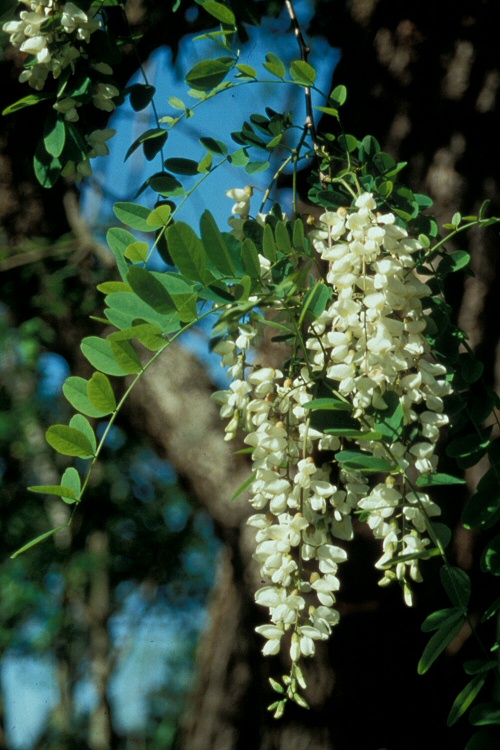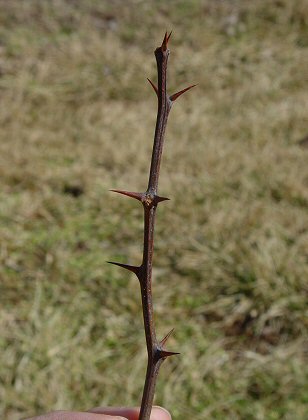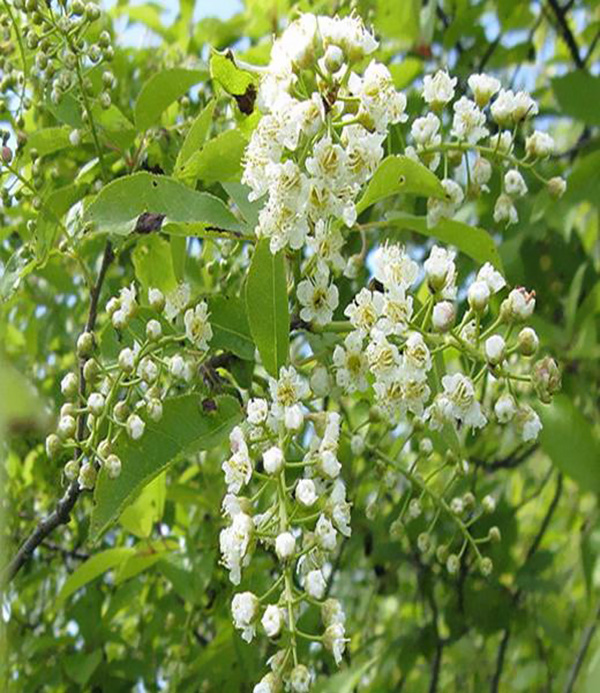Introduced species: Black Locust (Robinia pseudoacacia)
Characteristics: Black locust is a tree species native to the Appalachian Mountains and southern Midwest of the United States. Adult trees may be 30 m (100 ft) tall, and have furrowed bark with flat ridges; thorns, often in pairs and up to an inch long, occur at the bases of the leaves, especially on young trees or new growth. These do not have your best interests at heart. Leaves are alternate and pinnately compound, with 7 to 21 oval-shaped leaflets. Drooping clusters of fragrant white flowers bloom in May and early June, followed by two- to four-inch seed pods that ripen in September or October. Black locust is a member of the pea family, and therefore changes soil chemistry by fixing nitrogen and altering nutrient cycling rates. Young plants grow rapidly, averaging four feet per year or more on good soil.
Spread: Black locust spreads primarily through vegetative means, with suckers from the roots and stump being most common. Even young trees (4-5 yr) produce an extensive root system, which can then begin forming suckers; disturbance to the roots increases sucker production. Stump suckers form readily if the main trunk is removed. This vegetative spread produces dense groves of black locust, spreading outward as much as 3 m (10 ft) per year.
Control: Black locust is very resilient, and control of the species is difficult. Manual and mechanical treatments (digging, cutting, etc.) are unlikely to work, unless coupled with chemical control. Foliar application of several herbicides can provide control on young plants; both saplings and established trees may respond to cut-stump or basal application of several different chemicals.
Native replacement: Chokecherry (Prunus virginiana) produces showy clusters of white flowers (similar to black locust), as well as edible (albeit very sour) fruits usable in jams, without any thorns. The fruits are also great for wildlife.



